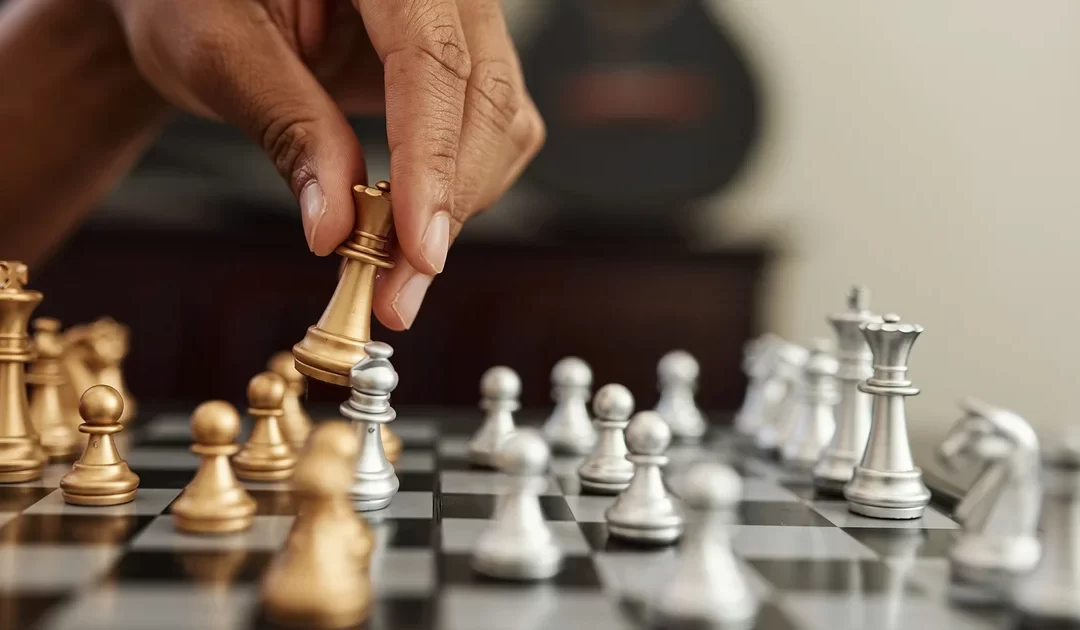Chess is more than a game of strategy; it’s a journey of personal growth. Every move teaches lessons that extend far beyond the chessboard, including how to navigate challenges, recover from setbacks, and maintain focus under pressure. At our chess academy, we prioritise emotional resilience as a core aspect of our teaching philosophy. Through positive reinforcement and tailored coaching, we aim to equip young players with the coping skills they need to thrive in chess and life.
Why Emotional Resilience Chess Matters
Emotional resilience—the ability to adapt to stress and bounce back from adversity—is a vital skill for young chess players.
- Handling Defeats: In chess, even the best players lose. Emotional resilience helps children learn from losses instead of being discouraged by them.
- Managing Pressure: Chess tournaments can be intense. Resilience enables players to stay calm and focused.
- Boosting Self-Confidence: Developing emotional resilience fosters a belief in one’s abilities, independent of outcomes.
Without these skills, children risk developing unhealthy attitudes toward competition, leading to frustration or burnout.
Our Chess Strategy for Building Emotional Resilience
At the academy, we implement a holistic approach that combines proven techniques with individualised support.

1. Positive Reinforcement
Research shows that positive reinforcement boosts confidence and encourages persistence. Our coaches celebrate effort and progress as much as victories, creating a supportive environment where players feel motivated to improve.
2. Emphasizing the Learning Process
We help players view each game as an opportunity for growth. By shifting the focus from winning to learning, children gain a healthy perspective on competition, reducing the fear of failure.
3. Practical Coping Strategies
To prepare students for emotionally challenging moments, we teach techniques such as:
- Mindfulness and breathing exercises: helping players stay present and calm during critical games.
- Visualisation: encouraging positive imagery to build confidence and focus.
- Reframing Setbacks: Guiding children to see losses as temporary challenges rather than personal failures.
4. Goal Setting and Achievement
Our coaches work closely with players to set incremental, realistic goals. Achieving these goals fosters a sense of accomplishment, motivating players to continue improving.
5. Fostering a Supportive Community
We emphasise teamwork and camaraderie, encouraging players to support each other during tournaments and practice sessions. Peer encouragement plays a crucial role in building resilience.
6. Role Modeling by Coaches
Children learn by observing. Our coaches demonstrate emotional resilience by managing their own reactions constructively, showing players how to stay composed under pressure.
The Science Behind Emotional Resilience
Studies in child psychology and sports education highlight the importance of resilience in competitive environments. Research shows that children who experience positive reinforcement and learn coping strategies perform better academically, socially, and emotionally. Incorporating mindfulness and visualisation techniques, for example, has been proven to reduce anxiety and improve focus, both of which are critical for chess players.
Real-Life Impact: A Case Study
One of our students, Riya, struggled with anxiety during competitions. With personalised coaching, she practiced mindfulness techniques and set incremental goals. Over time, her confidence grew, and she began to see setbacks as stepping stones. Today, Riya competes at the state level and is an inspiration to her peers. Her story is a testament to the power of emotional resilience in achieving personal and competitive success.
Tips for Parents: Partnering in Resilience
Parents play an essential role in reinforcing emotional resilience. Here’s how you can help:
- Celebrate Effort, Not Just Results: Focus on your child’s hard work and dedication rather than the outcome.
- Encourage Reflection: After a game, ask your child what they learnt rather than focusing solely on the result.
- Promote Balance: Encourage other hobbies and activities to prevent burnout and keep competition in perspective.
- Model Resilience: Show your child how you handle stress or setbacks in your own life.
A Lifelong Skill Beyond Chess
The benefits of emotional resilience extend beyondchess. Players carry these skills into academics, relationships, and future careers. They learn to face challenges with a positive mindset, adapt to change, and persevere in the face of adversity.
At our academy, we’re not just shaping chess players; we’re nurturing resilient individuals who can thrive in any arena. By fostering emotional resilience, we empower children to view challenges as opportunities and approach life with confidence and grace.
Emotional resilience is more than a chess skill—it’s a life skill. Together, we can prepare our children for success on the board and beyond.


Recent Comments